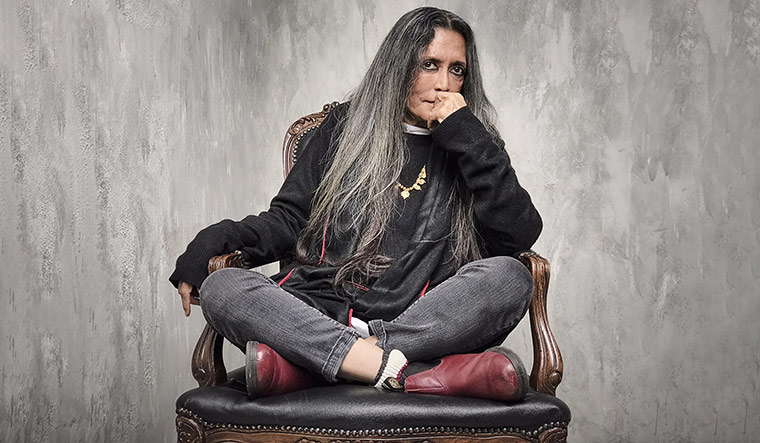It has been some time since Deepa Mehta had a wide release in India. The last one was the Preity Zinta-starrer Heaven on Earth in 2008. Other than that, her films, including the elements trilogy (Earth, Fire and Water), Midnight’s Children, Anatomy of Violence and Beeba Boys, have either been controversial or box office duds.
The Indo-Canadian filmmaker, who delves deep into the socio-political fabric of the land in her films, has often been targeted by religious fundamentalists for her films like Fire, Water, and Midnight’s Children, an adaptation of Salman Rushdie’s namesake book. “He [Rushdie] has got the Muslims and I have got the Hindus,” she had famously said about the religion of the fundamentalists attacking them.
But she is back, this time as executive producer and co-director of Leila, a series based on Prayaag Akbar’s namesake novel. The first season, starring Huma Qureshi, Rahul Khanna, Siddharth, Seema Biswas and Sanjay Suri, releases on Netflix on June 14. Sitting in a five-star hotel room with Qureshi, Leila’s lead actor, she talks to THE WEEK about the strength a woman needs and the battle she must wage to claim her right to live. She, however, refuses to talk about the controversies surrounding her previous films.
It may not be a coincidence that all her stories, including Leila, revolve around women who have to fight for their rights, often under extreme circumstances. Leila is set in an authoritarian land—Aryavarta—sometime in the 2040s. The rules are well-defined—you live, work and die for Aryavarta. Wanting to do anything else is punishable. In this dystopian land, people live in ghettos demarcated by caste and religion. There is scarcity of water and fresh air. Women who have refused to comply with the rules, like Shalini (Qureshi), have been imprisoned in an Aryavarta Purity Camp. Her Muslim husband has been murdered and six-year-old daughter is missing. To get released, she must submit to the rules of Aryavarta. For how long can she hold out?
The series digresses from the book at certain points. Liberties have been taken, but the strain of feminism is strong in both. “I had read the book and I had read about how to re-imagine a book as a series,” says Mehta. She loves that the book, while set in India, also addresses themes that are universal. “It spoke of what is happening, not just in India but also in the world, and the way [things] have been changing,” she says. “The totalitarian regimes as well as the place of a woman in such a society. That is what really got to me.” She adds that Leila is not like the American dystopia of The Handmaid’s Tale that mostly deals with female sexuality. “This is about a woman’s spirit and how she retains her dignity,” she says. “Can she have a life without the man? I feel Shalini’s journey is a very strong, powerful magnet in a totalitarian regime. It was very attractive and challenging.”
Qureshi says that for her, the challenge was how to portray Shalini’s strength under her circumstances. “She has a lot of strength of character,” she says. “Despite everything, she keeps it together and does not lose her sanity. There were often times I was getting quite affected. It was physically and emotionally taxing. Although it is only acting, something changes when you do a role like this.”
There were many challenges in creating the totalitarian regime. Mehta’s biggest one was to create a world that was familiar—as things would not have changed all that much in 20 years—but at the same time, unfamiliar as well. “I can talk to you about a totalitarian regime, but how do I show it?” she asks. “How do I translate the words into an image?” It took her months to create the production set in the Delhi-NCR region.
For Qureshi, the difficulty was in portraying a person who fights injustice while retaining her humanity and dignity. “You have nothing,” she says. “And you are told that you are nothing. Your life, choices, marriage—everything is illegal. It is against the regime. It is not right. It is something that is happening in America right now. You have no control over your body. No right to get an abortion. But if it happened to me, how would I respond and find a way to fight it?”
Although the actor is referring to the US, things are not very different closer home. After the trailer of Leila released in May, many right-wingers protested on social media. Like what happened with Ghoul last year, they labelled Netflix’s shows as anti-Hindu and called for a ban on the streaming platform.
Mehta, however, has dealt with extremist reactions for far too long to be affected by it. She looks at it with a sense of humour now. “And, eat watermelon,” she says with a laugh, as she bites into a piece of the fruit. “At the end of the day, it is just a movie and not life. You have got to have the ability not to take it so seriously. What is important to me is my daughter, mother, husband, humanity, ending pollution, ensuring education for everyone and equality for women.” If the extremism in the world harms children and women, then there is something really wrong, she says, critical even of a utopia in which people talk of free love and respect for all.
Mehta is not discouraged by the mixed reaction the trailer has received. She says that when there is division, there can be a dialogue. If everything is “wow” from the beginning, there might not be any curiosity for the final product. Now, people are waiting to watch the series. Anything that triggers discourse is excellent. “We are a democratic country,” she says. “We should have the freedom to have a dialogue.”



